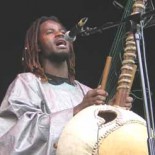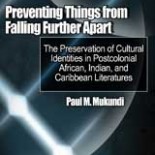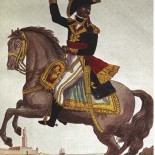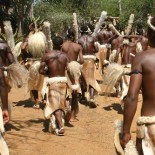Dialogue of Cultures: The Africa of Arts, Politics, and Religion and its Impact on the West
| Dialogue of Cultures: The Africa of Arts, Politics and Religion and its Impact on the West SORAC’s Africa and the Diaspora in the 21st Century Series “Ex Africa semper aliquid novi” |
A One-Day Conference for High School Teachers, the Montclair State University Campus Community and Members of other Higher Education Institutions
Thursday, December 11, 1997
8:30 AM to 2:30 PM
Organized by SORAC and the Institute for the Humanities for members of the New Jersey secondary school community, the Montclair State University campus community, and members of other institutions of higher education, this conference seeks to explore the Africa that we do not often hear about: the Africa of artistic beauty (fine arts), the Africa of religious complexities, the Africa of performing arts (music) and the Africa of traditional politics with its elaborate and democratic social organizations. This conference features guest speakers of national and international reputation who will introduce us to the social and intellectual evolution of this controversial continent, as well as to the various influences that Africa has had over western humanistic traditions.
Art
This illustrated lecture will survey the artistic achievements of some of the African nations most richly endowed with a tradition of artistic expression, and explore their social and religious significance in the context of the complexities that define African cosmology. Artefacts in different media, some of which predate the first western contacts with Africa by many centuries, will testify to the spectrum and variety of Africa’s accomplishments in the fine arts—from masks to ceramics to paintings, etc. At the same time, this lecture will show how Africa’s artistic expression influenced western art, most famously in the “primitivist” work of such western artists as Picasso, among others.
Speaker: Dr. Lorenzo Pace, Fine Arts, Montclair State University
Religion
Our specialist in African religions will describe some of the identifying characteristics of indigenous religious systems in African cultures and explain how they differ from those that typify the three great religious systems of the west (Christianity, Judaism, and Islam). African conceptions of God and of humankind’s relationship with God, nature and the ancestors will be compared and contrasted with those which define western religions. We will also explore the emergence both on the African continent (e.g. in South Africa) and elsewhere in world as a result of the African diaspora (e.g. the Americas) of independent Christian or Africanized churches, and the various influences that Africa’s religious thoughts and worship practices have, as a result, exerted on the west.
Speaker: Professor Mutombo Nkulu, African American Department, Temple University.
Socio-Political Organization
Western accounts of Africa’s systems of socio-political organization beginning from the first colonial encounters of the fifteenth century onwards have typically portrayed them as disordered and primitive, while in modern times others have found in African societies innate predispositions towards dictatorship. Yet this talk will show that, in fact, well-developed democratic social structures already existed in African cultures prior to the arrival of the western colonialists, and that many of modern-day Africa’s political problems can be traced back to the west’s imposition on Africa of western monarchical and centralized traditions that were alien to, and proved to be destructive of, indigenous socio-political structures.
Speaker 1: Dr. André M. Kapanga, Ambassador of the Democratic Republic of the Congo to the United Nations.
Speaker 2: Dr. Daniel M. Mengara, French Department, Montclair State University.
Music and Performance
Music is integral to all aspects of life in African cultures in a way that it has long ceased to be, and perhaps never was, in the west. Traditional African music is constantly recreated and relived every time it is performed. It is both rehearsed in direct practice and improvised, performed in celebrations of joy as well as in ceremonials of sadness. Of all the possible cultural “exports” of Africa to the west, music has perhaps been the most influential of all aspects of African cultures on western societies, overriding, and, indeed, thriving, in the context of western recording technology in the form of, for example, jazz, reggae, gospel, and rap music. This lecture will show how African music has influenced the syncretic tradition of western, especially American, popular music. Speaker: Dr. Mack Brandon, Convener, Music Program, Ramapo College.




